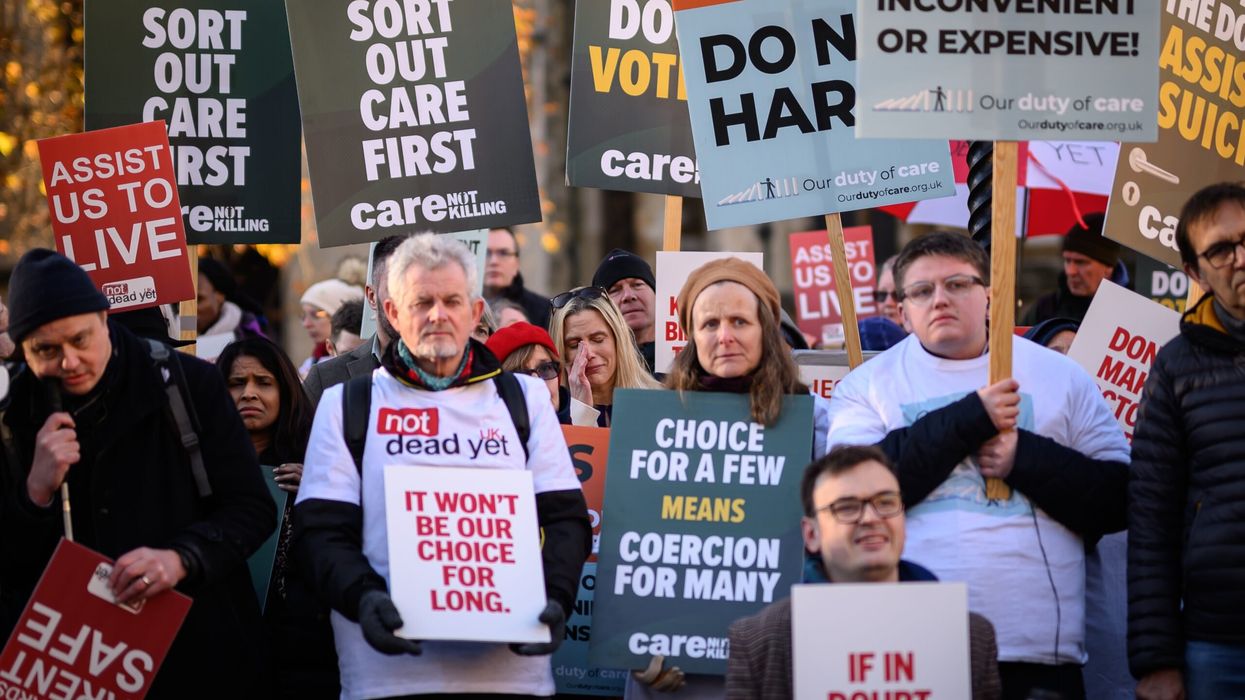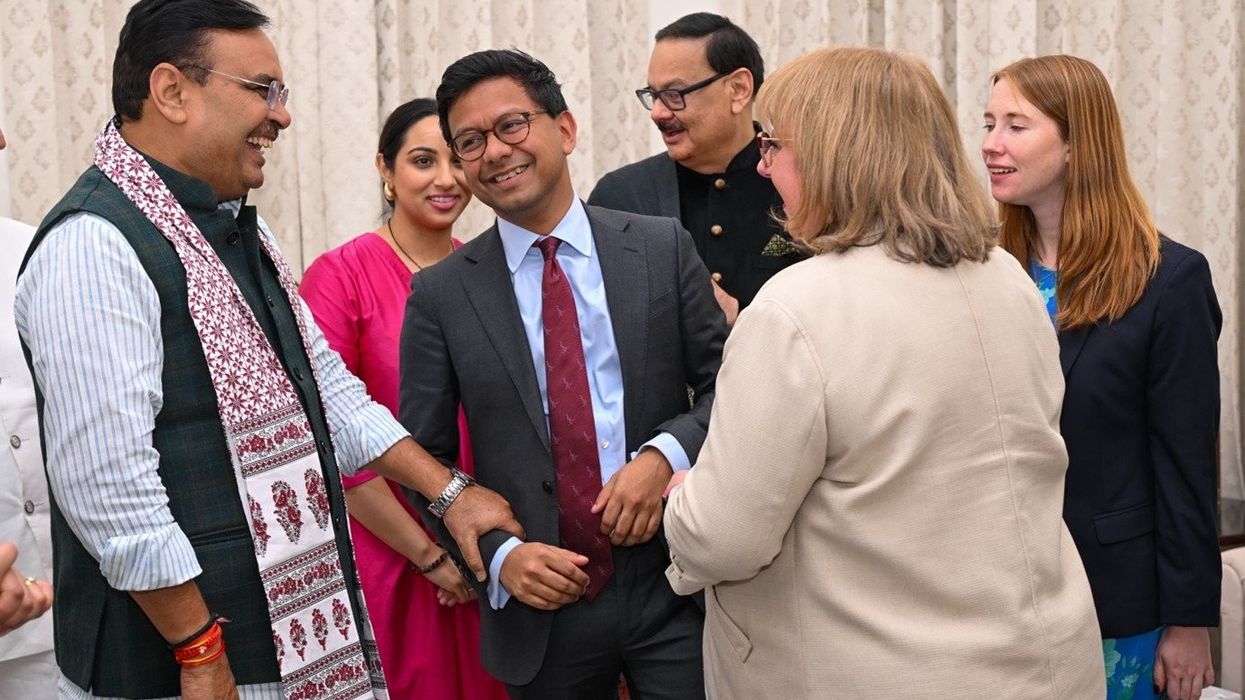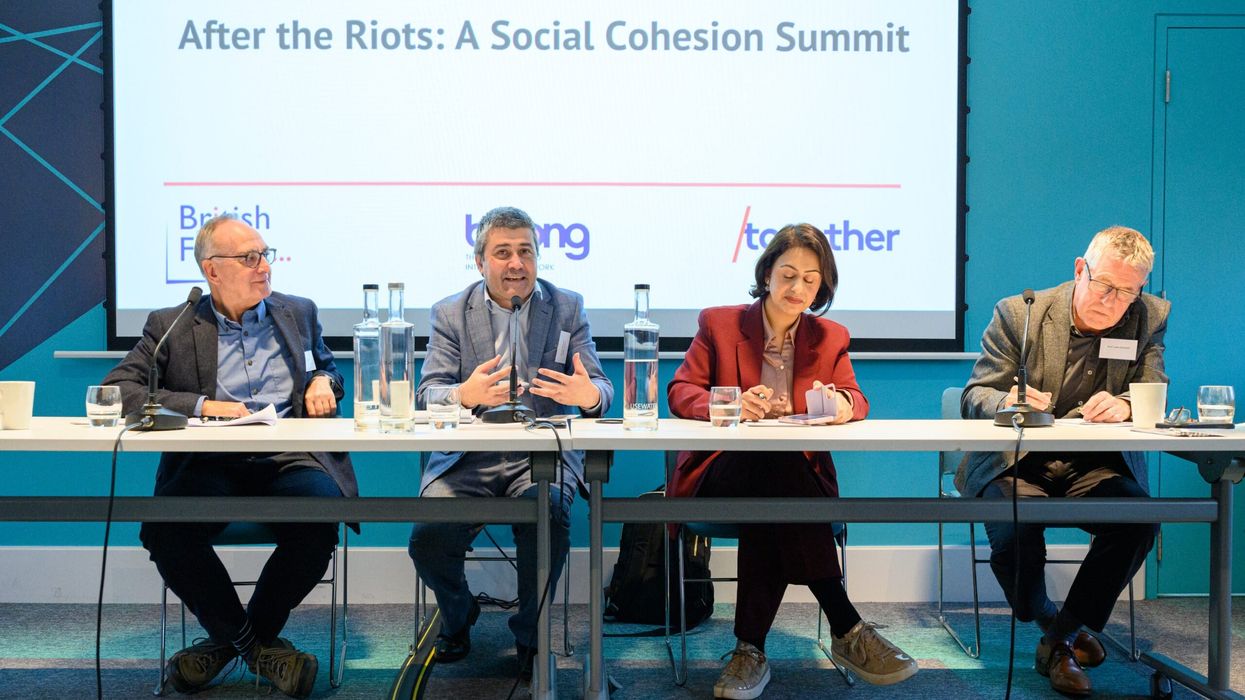By Jon Ashworth
Labour MP for Leicester South and shadow health and social care secretaryTHE pictures last week of 90-year-old Margaret Keenan, the first person in Britain to receive the Covid vaccine from May Parsons, a nurse who came to work in our NHS from the Philippines (pictured together, right), left me beaming with pride.
It was a welcome moment of hope in what has been a dismal year when many loved ones have been lost. Weddings and funerals have been missed. Grandparents have been unable to hug their grandchildren. Social distancing ha curtailed our celebrations, from Vaisakhi and Eid to Diwali.
But we know now that there is light at the end of the Covid tunnel. The extraordinary work of scientists in getting us this far is definitely a cause for celebration.
But before we can get back to normal, the NHS has the mammoth task of vaccinating millions and millions of people against coronavirus.
For the vaccination programme to be successful, we need complete transparency from the government on when and how people will be getting vaccinated. That’s why we’ve been urging ministers to publish a practical plan for how the vaccine is going to be rolled out swiftly, smoothly, and safely.
The complexity of this task can’t be overstated, but we’re starting from a strong position. Millions of people get vaccinated every year in this country, and the doctors and nurses in our GP surgeries and community pharmacy are the experts in delivering essential vaccines to their patients. Every year the NHS vaccinates over 14 million people against flu, with the bulk of the jabs given by GPs. That’s why we strongly welcome the role that GPs are playing in the roll out of the Covid vaccine.
I also know from my own experience in Leicester how vital community pharmacy will be to this vaccine roll out. I’m urging government to properly engage and involve our network of local chemists who are the heart of communities like the one I represent.
Vaccine hesitancy is a serious public health risk and one that we’ve been worried about since before this terrible pandemic. Rates of MMR vaccination in children have been falling, and last year we shockingly lost our measles-free status.
Having said that, it’s really important that we don’t rubbish the legitimate questions people have about this vaccine. What we need is strong public health messaging to answer queries about the vaccine and what it means for people and their loved ones.
Any public health campaign has to take into account the terrible fact that though the pandemic has impacted us all, its burden has not been shared equally. The horrific truth is that the coronavirus thrives on inequalities. Black and Asian groups have been disproportionately impacted by the spread of the virus. More black and Asian people end up in intensive care with the more severe symptoms of the disease, and very sadly, people from Asian communities have had a higher risk of dying from the virus.
We know that BAME people have been over-exposed to the virus – they are often key workers on the frontline of delivering vital public services. They have been stigmatised and often overlooked in this pandemic too. We cannot allow this to continue to happen with the roll out of the vaccine.
Last week’s news is incredibly uplifting. It’s what we all needed at the end of what has to have been one of the most difficult years in living memory.
Over the coming days and weeks, as the vaccine begins to be rolled out across the country, we need a health inequality focus built into the government’s vaccination plan, to ensure there is equal access for all who need it. We need a strategy to ensure no community is left behind.
It’s vital mandirs, gurdwaras and masjids are given information on the vaccine to communicate to the community and that materials are produced in the languages needed, including, for example, in Gujarati, Punjabi and Urdu. The NHS’ vaccination experts – the Joint Committee on Vaccinations and immunisation (JCVI) – have published the order in which they expect the vaccine to reach different groups, with the oldest and most vulnerable first.
We understand this approach, and this means we must all do our bit to ensure our older relatives know the vaccine is coming and ensure they get the jab. Let’s get our families prepared, ensure they’re informed, and ready for their appointment. By supporting the NHS in whatever way we can, we will ensure the programme is a success.
Our tributes and gratitude must go to the scientists who have worked around the clock to get this vaccine to the people who need it most in record time, and our thanks to all the NHS staff now helping to deliver the vital jabs.




















‘Support the NHS to ensure vaccination success’